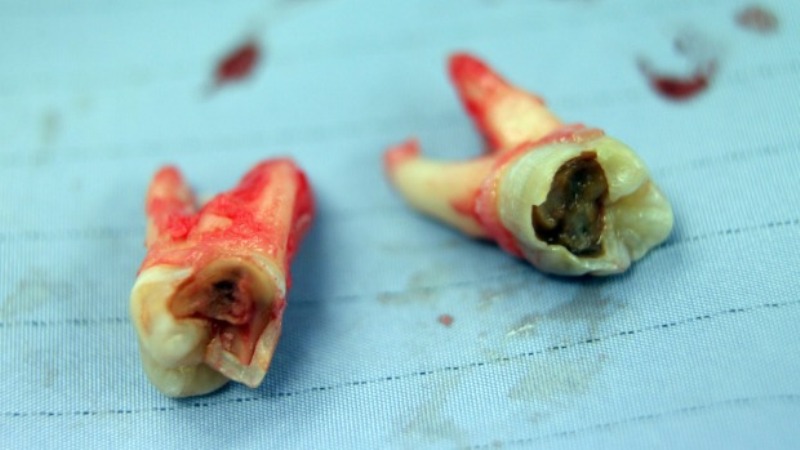
Gone are the days where young children are visiting the dentist for a simple routine cleaning. The tremendous amount of sugar that many children consume are leaving them with tooth decay, and dentists around the world are having to pull out teeth, due to rotting.
A 3-year-old boy in New Zealand recently had to undergo 11 teeth extractions thanks to his astonishingly high sugar intake. New Zealand dentist Dr. Rob Beaglehole noted that the 3-year-old’s sippy cup was commonly filled with soda.
Sugar Consumption in America
The problem stretches far beyond New Zealand. The American Heart Association recommends that women consume no more than 6 teaspoons of sugar each day, and men should consume no more than 9 teaspoons a day. One 20 oz. Coca-Cola contains 15 teaspoons of sugar! If you drink just one of these bad boys a day, you are doubling the recommended daily amount.
So do Americans actually adhere to the warnings of sugar consumption? The amount of sugar consumed by the average American each day is a whopping 23 teaspoons – more than triple the recommended amount for men and quadruple the recommended amount for women, according to the American Heart Association.
Appalachia – the region that stretches roughly from southern New York to Alabama – has also noted a problem with sugar consumption. Public health advocates in the area say soft drinks are creating alarmingly high levels of eroding teeth. They’ve even named the problem – “Mountain Dew Mouth,” after the area’s popular drink of choice.
Citric acid, a preservative that enhances both the flavor and the shelf life in soda, is the main culprit. It erodes the enamel and eventually the dentin, which is the core of the tooth. Energy drinks also commonly contain high levels of citric acid.
Other Health Risks of Added Sugar
Tooth health is far from the only reason to stay away from added sugar. Sugar can overload the liver and has been linked to non-alcoholic fatty liver disease. It can cause insulin resistance – the leading driver of many diseases, including metabolic syndrome, cardiovascular disease and type 2 diabetes, and high sugar consumption even leads to a much higher risk of developing cancer.
Sugar consumption has grown at an alarming rate, and it’s now known as the leading contributor to obesity in both children and adults. It’s extremely addictive and decreasing satiety levels, causing people to lose control over the amount of food and sugar they consume. Childhood obesity has more than doubled in children and quadrupled in adolescents in the past 30 years. In 2012, more than one-third of children and adolescents were overweight or obese.
The immediate health effects of obesity are matched by the long-term health effects. According to the Centers for Disease Control and Prevention, obese youth are more likely to have risk factors for cardiovascular disease, prediabetes, bone and joint problems, sleep apnea, and social and psychological problems including poor self esteem. Children and adolescents who are obese are likely to be obese as adults, putting them at risk for heart disease, type 2 diabetes, stroke, several types of cancer and osteoarthritis.
The New Zealand Dental Association suggested that parents adopt a water and milk only policy for young children, in hopes of preventing more tooth decay from soda. The beverage industry has repeatedly challenged claims that their products are destroying teeth, but dentists and nutrition experts beg to differ. While rotten teeth in 3-year-olds are just another alarming consequence of excess sugar intake, the problem stretches further than soda.



